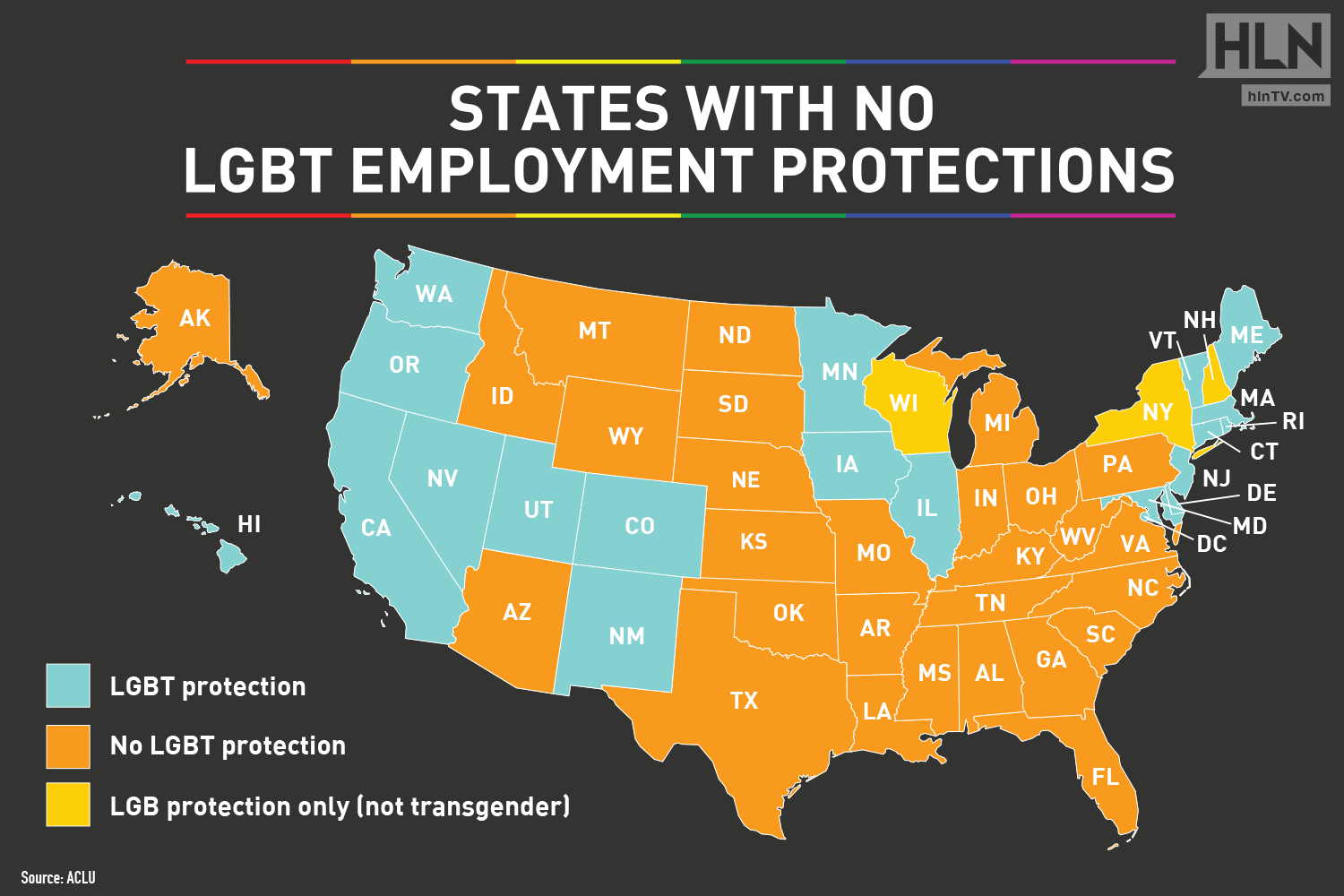This One Graphic Powerfully Illustrates the Next Battle for LGBTQ Rights

By:
On June 26, the U.S. Supreme Court extended the constitutional right to marriage for same-sex couples across the nation. The event marked an important milestone in the fight for LGBTQ rights, but there are still areas where lesbian, gay, bisexual, transgender, and gender queer individuals continue facing discrimination, especially with respect to employment.
The map below from HLN shows states that do and do not have protections against LGBT employment discrimination:
 HLN - facebook.com
HLN - facebook.com
"Twenty-one states and the District of Columbia have passed laws prohibiting employment discrimination based on sexual orientation," the Human Rights Campaign states on its website, "and 18 states and D.C. also prohibit discrimination based on gender identity."
Executive orders issued last year by President Barack Obama also extend anti-discrimination protections, based on sexual orientation or gender identity, to federal employees and federal contractors.
Despite this, many are still vulnerable -- a chart released by the Center for American Progress in 2012 showed that more than half of LGBT workers lack protection. Ruth Colker, an expert in discrimination law at Ohio State University, told the New York Times that local government laws are often not enforced or are weak -- highlighting the need for state regulations.
According to the Times, many activists and some lawmakers, like Sen. Jeff Merkley (D-OR) are looking to add protections for sexual orientation and gender identity to the Civil Rights Act of 1964. Merkley pans to introduce the bill in the coming months. This would give broad federal protections to LGBT individuals.
The Employment Non-Discrimination Act is another federal bill that would "provide basic protections against workplace discrimination on the basis of sexual orientation or gender identity," according to the Human Rights Campaign. A version of the federal bill was first introduced back in 1994. A recent iteration of ENDA, which allowed for small business and religious institution exemptions, passed in the Senate at the end of 2013, but did not make it through the Republican-controlled House of Representatives.
From a state-by-state perspective (where only 22 states have enacted some sort of non-discrimination act) a barrier to protections incudes conservatives' worry that it will interfere with religious liberty. However, a 2014 Harris poll found that 55 percent of Americans believe that no employers should be exempt from non-discrimination laws -- not even religious groups.
